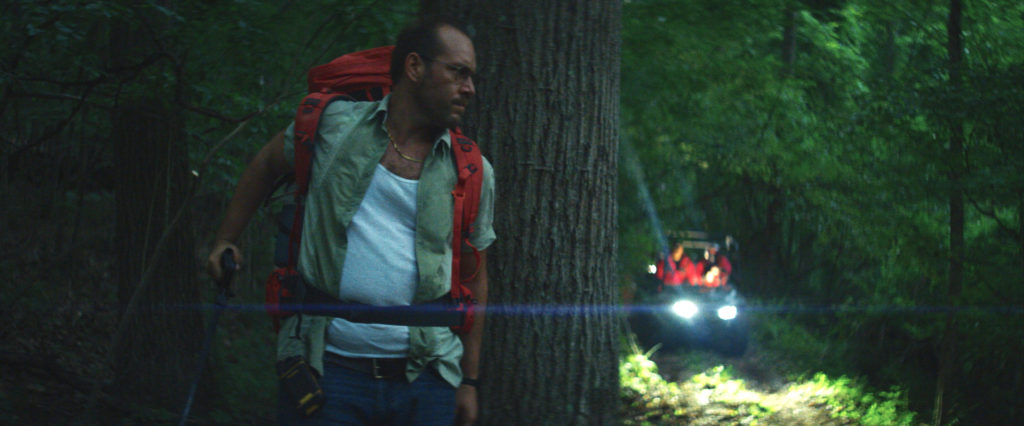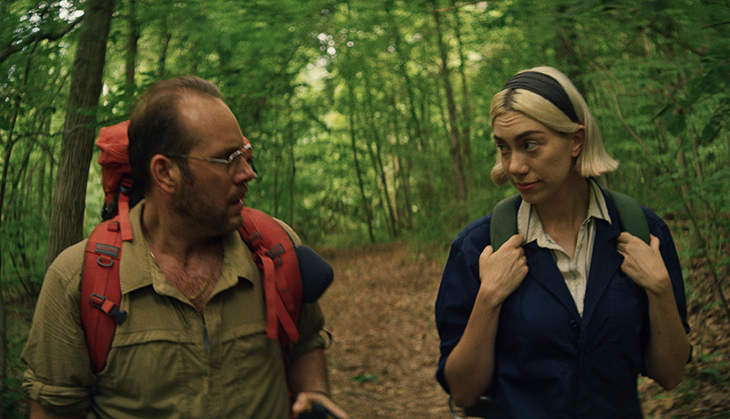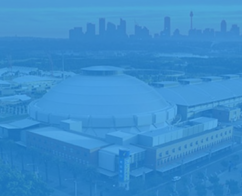
From the mind of writer/director Noah Hutton, the critically acclaimed feature Lapsis opened in cinemas across Australia today.
The sci-fi outing provides a darkly comic, original and timely perspective of the gig economy and the failed utopian promises of big tech. To celebrate its release, we caught up with Hutton to get insight into its inspiration, unique production and more.
Where did the inspiration for Lapsis come from?
I think it came from a couple of different places: certainly, my own experience working as an independent contractor for the past decade, experiencing the treadmill of the gig to gig lifestyle, and wanting to explore a possible new sector of the gig economy having to do with a boom in quantum computing.

Dean Imperial and Madeline Wise in ‘Lapsis’
Then I read that quantum computing would actually require new cables, so I started to think about a speculative market that constantly needs to be rewired. And I think that’s where another influence came in, which is that I’ve been deep into brain stuff for some time now, working on a ten year documentary about neuroscience called In Silico and having studied it as an undergraduate, so I started to think of the world of Lapsis as almost neuronal, with individual workers rewiring a world that is incredibly abstracted from any one person’s understanding.
It’s been said that the “making of the film mirrored the message of the film” – can you elaborate on that?
Many of us who worked on the film have experienced or witnessed a range of abuses on low budget, independent film sets before, so we wanted to try to foster a new way of working together that got out in front of all the ways best intentions can collapse when money and time get tight.
Inspired by the lab book of a marine plastics laboratory called CLEAR that we had made a short documentary about, we put together a filmmaking handbook to guide our relations on set.
We also made sure nobody was making below minimum wage and built all crew into the back-end of the film’s profit structure. It’s a film about labour abuses so it also felt particularly important not to replicate the very things we’re commenting on in the film within the way the film itself is being made.
 Being shot in only 26 days, what were some of the challenges you faced?
Being shot in only 26 days, what were some of the challenges you faced?
We really were trying to stretch our low budget as far as we could in terms of what people call “world-building”, basically trying to give a sense of the extent of the world of the film beyond what’s seen.
Pushed thin, we had to move quickly through our days — there wasn’t much time to come up with new shots or scenes on the go. So we were very prepared ahead of time, but many of the challenges ended up being weather and time-related since three-quarters of the movie was shot out in the forest.
We were extremely lucky with rain, especially in a film with robots in it. We only got rained out of one half of one day.
What do you hope audiences take away from the film?
That it’s a story about people deciding not to get their own and get out but rather to come together and help one another in a real way, in opposition to forces that would want us to remain so isolated from one another. People often ask me about the ending but I don’t want to give away anything here. There’s a Reddit thread about it if anyone is interested after having seen it.
‘Lapsis’ is now showing in cinemas across Australia.









